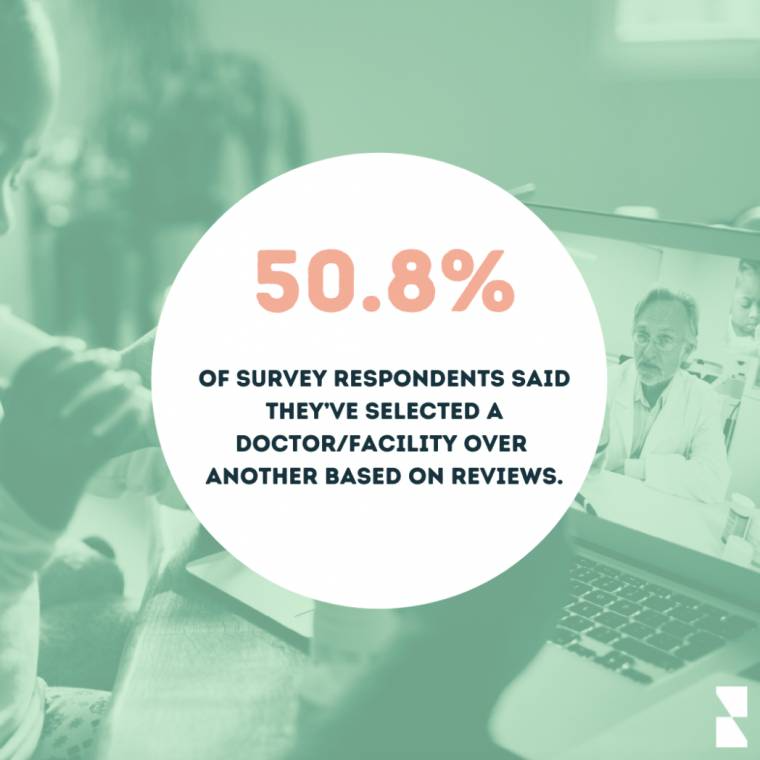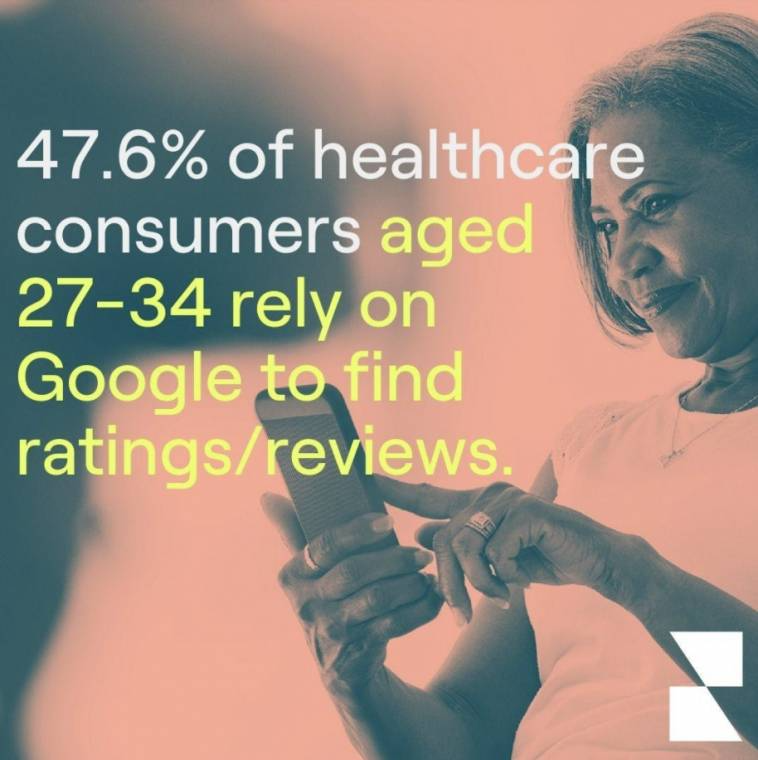
Online patient reviews are so important to the bottom line in healthcare. Unfortunately, some of those will inevitably be bad reviews. The internet has given rise to third-party feedback sources such as Google reviews for providers. That means that patient feedback is everywhere.
Some of those reviews will be praising doctors and their care, making them easy to respond to. But the negative feedback is a little more difficult to handle. It’s vital to develop a strategy to manage and respond to those negative reviews.
Knowing what to do with that feedback is the cornerstone of healthcare online reputation management. In this article, we’ll help you get on the right path to efficiently handling online patient reviews. We’ll do so by covering the following sections:

If someone needs a new doctor, they’re going to take that search online. That means that people will be combing the internet for the best site to read online reviews of doctors. Our 2021 Healthcare Report found that 50.8% of survey respondents said they’ve selected a doctor over another based on reviews.
People use online feedback to find a trustworthy healthcare provider who typically has a star rating of four or higher. After insurance and location, third-party reviews are the most important thing to those looking for a new doctor. Google is the most important review site for healthcare consumers, so it’s vital to keep that in mind.

Search engines like Google love fresh, unique content. According to Sixth City Marketing, online reviews play a role in search factors for local businesses. The best way for your administration to acquire more content is through online customer reviews.
The more honest reviews your listing has, the more people and search engines will trust it and rank it higher in local search. Those reviews can help you to increase your conversions as well. Google is the preferred review site for many consumers. That means it’s vital to ensure your business listing is claimed and accurate so consumers can find feedback.
Related: Reviews Are Coming Back to Healthcare
Missing information from that listing isn’t very welcoming. In fact, it’ll reflect pretty poorly on your organization. Current and potential patients may likely mention that in their reviews.
For example, if your phone number isn’t listed, someone may leave a bad review stating that they couldn’t reach anyone. That could result in a patient’s loss. Your organization can avoid unnecessary negative feedback by making sure your Google business listing is clean and updated.
At Reputation, our dedicated healthcare team helps customers manage all online reviews and create processes for quicker service recovery. Here are some steps to take to flesh out your healthcare review strategy:
Related: How Reputation Helps Healthcare Systems Thrive in Google’s World
Brynne Ramella
The original version of this page was published at: https://reputation.com/resources/articles/online-healthcare-reviews-respond/
The Leading Marketing and Patient Experience Platform. Drive provider and location selection and improve CX. Help patients find and choose your doctors, hospitals and clinics, and improve care with... Read more
Few companies have a ready playbook on how to handle brand communications during a pandemic. There’s a good chance that they will in the future, though. For now, many businesses ...read more
Google recently launched a COVID-19 Post type to help businesses quickly update their Google My Business (GMB) pages with coronavirus-related information that affects their operations. ...read more
Viveka von Rosen is a LinkedIn expert who has written several books on LinkedIn marketing. She helps clients build their personal brand using LinkedIn.How did you become an expert ...read more
As businesses close brick-and-mortar storefronts in response to the COVID-19 pandemic, Google is urging them to revise their Google My Business (GMB) listings accordingly. On March ...read more